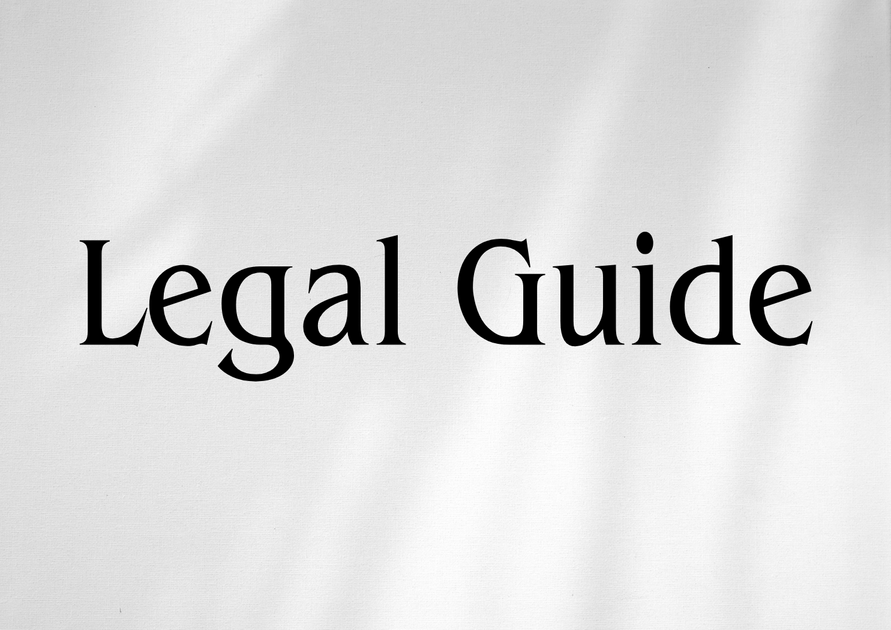Introduction: Navigating the Legal Landscape for Foreign Airlines in the UAE
The United Arab Emirates (UAE) fosters a dynamic aviation hub, welcoming foreign airlines and supporting a global aviation network. For carriers seeking to operate within the UAE, an advanced understanding of the nuanced legal framework is more important than ever—especially with recent regulatory enhancements that redefine operational compliance, safety, labor, licensing, and competition. With sweeping reforms promulgated through the Federal Decree-Law No. 20 of 2023 Regarding the Regulation of Civil Aviation, extensive updates by the UAE General Civil Aviation Authority (GCAA), and the UAE’s alignment with international protocols, 2025 marks a pivotal year for aviation stakeholders.
This article offers authoritative, consultancy-grade guidance on the UAE’s legal and regulatory environment for foreign airline operations. It is designed to empower business executives, compliance officers, HR representatives, and legal practitioners to confidently navigate licensing, labor, liability, safety, and reporting obligations, as well as manage risks associated with non-compliance.
Understanding these complex requirements is critical for risk mitigation, safeguarding reputations, and leveraging the UAE’s world-class aviation infrastructure.
Table of Contents
- Overview of UAE Aviation Laws and Regulatory Authorities
- Key Legal Entry and Licensing Requirements for Foreign Airlines
- Labour, Employment, and Emiratisation Obligations
- Operational Compliance: Safety, Security, and Environmental Laws
- Competition, Consumer Protection, and Commercial Practices
- Customs, Taxation, and Sanctions Considerations
- Enforcement, Oversight, and Penalties for Non-Compliance
- Practical Compliance Strategies for 2025 and Beyond
- Conclusion: Shaping the Future of Foreign Airline Operations in the UAE
Overview of UAE Aviation Laws and Regulatory Authorities
Federal Legal Infrastructure
The regulation of civil aviation in the UAE is anchored by the Federal Decree-Law No. 20 of 2023 Regarding the Regulation of Civil Aviation. Supplementing this primary law are a series of GCAA-specific regulations, ministerial resolutions, and Cabinet decisions such as the Cabinet Resolution No. 213 of 2023 on Air Transport Regulations. These laws collectively define the criteria, oversight, and conduct for all air carriers—domestic and foreign—operating within UAE airspace and airports.
Key Regulatory Bodies
- UAE General Civil Aviation Authority (GCAA): Main federal aviation regulator, licensing authority, and enforcer of aviation safety, security, and environmental standards.
- Ministry of Economy: Issues commercial licenses and monitors competition and consumer protection in the aviation sector.
- Ministry of Human Resources and Emiratisation (MOHRE): Supervises labor law compliance, including expatriate employment and Emiratisation requirements.
- Federal Customs Authority, Abu Dhabi & Dubai Customs: Manage customs, import/export, and sanction compliance at points of entry.
International Alignment
The UAE is a state party to key international aviation agreements, including the Chicago Convention on International Civil Aviation and Remotely Piloted Aircraft System (RPAS) protocols. Local implementation is ensured through GCAA’s technical guidance and the UAE legal system.
Key Legal Entry and Licensing Requirements for Foreign Airlines
Air Operator Permits and Bilateral Agreements
Foreign airlines must secure approvals before conducting scheduled or non-scheduled flights into the UAE. Entry is governed by multilayered legal instruments:
- Bilateral Air Services Agreements (ASAs): Country-level treaties specifying rights, traffic frequencies, market access, and designated carriers (see UAE GCAA official list).
- Foreign Air Operator Certificate (FAOC): Mandated by GCAA, an FAOC is a prerequisite for all non-UAE airlines.
- Commercial Registration: Coordination with the Ministry of Economy for the establishment of a commercial presence, as required for marketing, sales, or local office functions.
- Operating Permits: Depending on route and flight type (scheduled/charter/cargo/private), airlines must comply with relevant, sometimes airport-specific, permit requirements (e.g., Dubai Civil Aviation Authority for Dubai airports).
Recent Legal Advancements (2023–2025 Updates)
The Federal Decree-Law No. 20 of 2023 introduced:
- Greater emphasis on safety and environmental risk management for international operators
- Revised documentation and reporting standards (digital transformation imperatives)
- Stronger oversight on financial solvency and insurance provision for foreign carriers
- Compliance reviews incorporating anti-money laundering (AML) and Know Your Customer (KYC) standards
| Old Regime (Pre-2023) | New Regime (2023–2025) |
|---|---|
| Conventional FAOC & bilateral approval process; manual filings | Enhanced due diligence; digital applications; AML/KYC checks |
| Basic liability and insurance coverage | Mandatory expanded insurance; periodic compliance updates |
Application Process and Timeline
Foreign airlines are advised to commence licensing procedures at least six months before the intended start date. Proactive compliance with GCAA documentation and bilateral treaty review are critical to avoid costly delays.
Case Example: Navigating Entry with a Charter Operator
A leading European charter airline sought to expand into Dubai World Central (DWC). While the bilateral ASA allowed scheduled flights, non-scheduled charter operations triggered a deeper review by local authorities. The GCAA requested detailed evidence of insurance, safety protocols, environmental risk assessments, and KYC documents from the airline’s beneficial owners. Proactive legal liaison and timely document provision ensured that the operator commenced flights within four months—avoiding a common six-month delay for compliance lapses.
Labour, Employment, and Emiratisation Obligations
UAE Labour Law Applicability to Foreign Carriers
The Federal Decree-Law No. 33 of 2021 Regarding the Regulation of Employment Relations (UAE Labour Law), as amended, applies to airline staff locally employed—regardless of their employer’s domicile. Key requirements include employment contracts, occupational safety, end-of-service benefits, and Emiratisation (priority to UAE nationals in certain roles).
Ministry of Human Resources and Emiratisation (MOHRE) Compliance
- Mandatory work permits for expatriate crew, ground staff, and sales personnel
- Wage Protection System (WPS) compliance for all UAE-based employees
- Emiratisation quotas (notably for customer service, administration, and managerial positions for certain aviation-linked roles)
- Adherence to anti-discrimination and equal pay provisions effective from 2022 updates
Comparative Table: Labour Law Requirements Then and Now
| Pre-2022 | 2023–2025 Reforms |
|---|---|
| Work permits; no local wage reporting Low focus on Emiratisation Basic safety compliance |
Mandatory WPS Increased Emiratisation quotas Expanded HSE (health, safety, environment) reporting Stricter anti-discrimination enforcement |
Case Example: Emiratisation Audit of a Foreign Airline
In 2024, MOHRE reviewed staffing records of a major Asian carrier’s Dubai branch. The audit revealed under-compliance with Emiratisation quotas. The airline was given a three-month rectification window and required to hire UAE nationals for certain supervisory positions, forestalling an administrative penalty and potential restrictions on its UAE operations.
Risks and Penalties
- Non-compliance can result in fines, suspension of work permits, and adverse publicity
- Repeat violations may lead to suspension or revocation of operating permits
Operational Compliance: Safety, Security, and Environmental Laws
Safety Standards and GCAA Oversight
UAE has adopted International Civil Aviation Organization (ICAO) Annexes into local regulation, with GCAA issuing Technical Directives and Circulars to enforce compliance. Foreign airlines are subject to:
- GCAA Air Safety Circulars (ASC) and Air Navigation Orders (ANO)
- Mandatory Safety Management System (SMS) adoption
- Periodic audits and ramp inspections, especially for code-share partners
- Advanced Passenger Information (API) transmission for security vetting
Security Protocols and Data Privacy
Airlines must adhere to security screening regulations (including Federal Decree No. 4 of 2012 on Combating Crimes of Terrorism and Cabinet cybersecurity resolutions). Passenger and cargo data must be reported in compliance with both aviation and UAE Data Protection Law (Federal Decree-Law No. 45 of 2021).
Environmental Compliance
- Mandatory noise and emissions standards compliance, including for older aircraft types
- Implementation of GCAA Circulars on aircraft fuel efficiency measures
- Alignment with UAE’s Net Zero 2050 goals and periodic environmental disclosures
Table: Key Compliance Obligations
| Operational Area | Requirement | Penalties for Non-Compliance |
|---|---|---|
| Safety Audits | Annual SMS and safety audits | Immediate grounding, fines |
| Security Screening | API submission, passenger vetting | Denial of landing/operating rights |
| Environmental Disclosures | Quarterly emissions reports | Administrative penalties, loss of permits |
Competition, Consumer Protection, and Commercial Practices
Fair Competition in the UAE Aviation Sector
The UAE Competition Law (Federal Law No. 4 of 2012, as amended in 2023) strictly prohibits price fixing, market allocation, and abuse of dominant position. While the aviation sector is subject to certain exclusions under bilateral agreements, antitrust scrutiny is sharpening—especially regarding code-share and alliance agreements.
Consumer Protection Regulations
Foreign airlines must comply with the UAE Consumer Protection Law (Federal Law No. 15 of 2020):
- Transparent airfare disclosure and refund policies
- Accurate communication of flight status and notifications of schedule changes
- Mechanisms for handling complaints (GCAA and Ministry of Economy hotlines)
Hypothetical Scenario: Alliance Agreement Review
Two international carriers formed a code-share on UAE routes. GCAA required full disclosure of capacity agreements to ensure compliance with UAE competition laws and bilateral ASAs. The arrangement withstood scrutiny due to robust consumer disclosure and absence of fare collusion.
Customs, Taxation, and Sanctions Considerations
Customs Compliance
Foreign airlines must observe UAE customs regulations, including the declaration of goods, duty-free stocking, and carriage of prohibited or restricted items. Transparent record-keeping for shipments, manifests, and documentation is essential for risk avoidance.
Taxation and Fees
- Airlines generally benefit from tax exemptions on income from international transport under Cabinet Resolution No. 52 of 2018, affirmed in Corporate Tax Law (Federal Decree-Law No. 47 of 2022).
- However, Value Added Tax (VAT) and user fees apply to some ancillary and ground services.
Sanctions and Diplomatic Compliance
- Strict adherence to UAE-imposed sanctions and international embargoes is required
- Violations involving subject persons, aircraft, or cargo can result in severe penalties and diplomatic ramifications
Enforcement, Oversight, and Penalties for Non-Compliance
GCAA Enforcement Authority
Through its Inspectorate and Digital Compliance Units, the GCAA wields significant power to audit, fine, and, where warranted, suspend or revoke operating permits of foreign airlines. Notable enforcement powers include:
- Unannounced ramp and flight inspections
- Mandates for prompt incident or accident notification
- Mandatory participation in compliance reviews and audits
- Escalation to Cabinet-level authorities for severe breaches
Penalties: A Comparative Overview
| Offence | Pre-2023 Maximum Penalty | 2023–2025 Maximum Penalty |
|---|---|---|
| Missing documentation | AED 50,000 fine | AED 250,000 fine + permit suspension |
| Breach of safety protocols | AED 100,000 + warning | AED 1,000,000 + indefinite ban |
| Labour law breach | AED 20,000 per worker | AED 50,000 per worker + blacklist risk |
Visual Suggestion: Penalty Comparison Chart
A chart illustrating penalty escalation under UAE law for safety breaches, labor non-compliance, and documentation lapses would underscore the financial and operational risks for airlines.
Practical Compliance Strategies for 2025 and Beyond
Best Practices for Legal and Regulatory Compliance
- Early Legal Due Diligence: Engage UAE-qualified counsel to review all bilateral treaties, GCCAA circulars, and route-specific rules before application.
- Training and Internal Auditing: Regularly train staff on local labor, environmental, and safety standards, and conduct internal mock audits.
- Technology and Data Security: Implement secure data transmission for regulatory interfaces and invest in digital compliance solutions aligned with GCAA e-Services.
- Emiratisation and HR Planning: Engage expert HR consultants to assess workforce planning and build Emirati talent pipelines in line with periodic quota adjustments.
- Incident Response Preparedness: Establish robust processes for immediate reporting and regulatory liaison in the event of an incident or enforcement action.
Table: Compliance Checklist (Sample)
| Compliance Area | Status | Action Required |
|---|---|---|
| FAOC & bilateral rights | Pending/Renewed | Ensure annual GCAA verification |
| Labour contracts & Emiratisation | In progress | Audit for quota and contract compliance |
| API & safety disclosures | Compliant | Implement digital monitoring tools |
| Environmental reporting | Partial | Upgrade compliance to quarterly reporting |
Visual Suggestion: Compliance Process Flow Diagram
An infographic depicting the step-by-step compliance process, from licensing application to periodic audit and enforcement response, could help illuminate the process for stakeholders.
Conclusion: Shaping the Future of Foreign Airline Operations in the UAE
The UAE’s evolving legal framework for foreign airline operations in 2025 reflects its determination to uphold world-leading standards of safety, efficiency, transparency, and market integrity. The enhancements in Federal Decree-Law No. 20 of 2023 and related regulations usher in a new era of accountability: one in which foreign airlines are expected to demonstrate not only operational excellence, but also robust corporate governance and proactive cooperation with local regulators.
Looking forward, airlines must anticipate an ever-sharper regulatory focus on digitalization, environmental impact, and labor market nationalization. Staying ahead means committing to legal best practices, fostering compliance cultures at every organizational layer, and investing in technology that streamlines regulatory engagement.
To successfully operate in the UAE, foreign carriers should prioritize ongoing consultancy and legal risk mapping. By taking a holistic approach to compliance and partnership with UAE-based legal experts, airlines position themselves for resilience, growth, and enduring reputation in one of the world’s most robust aviation markets.




